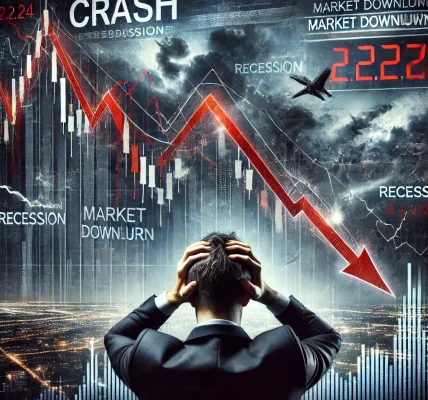Introduction
In recent years, retail investors have become a dominant force in the stock market, influencing price movements, shaping market trends, and challenging institutional investors. The rise of commission-free trading platforms, social media-fueled investment communities, and increased financial literacy have empowered individual investors like never before. But how exactly are retail investors reshaping the stock market? This article explores their growing impact, key trends, and what it means for the future of investing.
The Rise of Retail Investors
1. Technological Advancements & Accessibility
The accessibility of trading platforms such as Robinhood, E*TRADE, and Webull has enabled millions of retail investors to participate in the stock market. With commission-free trades and fractional shares, even small investors can build diversified portfolios.
2. Social Media & Online Communities
Platforms like Reddit (WallStreetBets), Twitter (FinTwit), and YouTube have become powerful tools for retail investors to share investment ideas, discuss trends, and execute coordinated buying or selling strategies.
3. Increased Financial Awareness
With an abundance of online courses, financial blogs, and investment tools, retail investors are now more informed about stock market strategies, technical analysis, and macroeconomic factors affecting stocks.
How Retail Investors Are Impacting Stock Market Trends
1. The Rise of Meme Stocks
Stocks like GameStop ($GME) and AMC Entertainment ($AMC) saw unprecedented rallies in 2021 due to retail investor coordination on Reddit’s WallStreetBets. These “meme stocks” surged as retail traders challenged hedge funds, leading to massive short squeezes.
2. Increased Market Volatility
Retail-driven trading has led to significant fluctuations in stock prices, especially in high-interest sectors like tech, EVs, and biotech. The rapid buy-and-sell activity often creates sharp price swings, forcing institutional investors to adjust their strategies.
3. Influence on IPOs and SPACs
Retail investors have played a major role in driving demand for IPOs and special purpose acquisition companies (SPACs). Companies like Rivian and Lucid Motors saw surges in stock price post-IPO due to retail enthusiasm.
4. Greater Impact on Options Trading
Retail traders are increasingly using options contracts, particularly call options, to amplify their bets on stocks. This behavior can cause sudden spikes in stock prices due to the “gamma squeeze” effect.
5. Democratization of Investing
Traditional investment used to be dominated by hedge funds and institutional players, but retail investors are now a major market force, influencing stock prices and challenging the status quo.
Expert Insights: What Analysts Say
- “Retail investors now have a larger share of trading volume than ever before. Their ability to move stocks cannot be underestimated.” – Market Strategist, Bloomberg.
- “Social media has become a new form of market research, with investors crowdsourcing information at an unprecedented scale.” – Financial Analyst, CNBC.
- “Hedge funds are adapting to retail-driven trends, using AI and data analytics to track retail trading patterns.” – Wall Street Trader.
Risks & Challenges for Retail Investors
1. Market Manipulation & Pump-and-Dump Schemes
Many stocks targeted by retail investors experience pump-and-dump cycles, where early buyers profit while late entrants suffer losses.
2. High Volatility & Emotional Trading
Retail investors often fall into the trap of emotional trading, making impulsive decisions based on hype rather than fundamental analysis.
3. Regulatory Scrutiny
Regulators like the SEC are closely monitoring retail-driven market activity to prevent market manipulation and protect investors from excessive risk.
The Future of Retail Investing
- AI-powered trading bots – Retail investors will leverage artificial intelligence for better decision-making.
- Decentralized finance (DeFi) & crypto investing – More retail traders will diversify into blockchain-based financial instruments.
- Increased regulatory oversight – Governments will introduce policies to balance market freedom with investor protection.
Conclusion
Retail investors have revolutionized the stock market, influencing trends, increasing volatility, and democratizing investing. While their impact presents opportunities, it also comes with risks. Understanding these dynamics is crucial for all market participants, from beginners to institutional investors.




